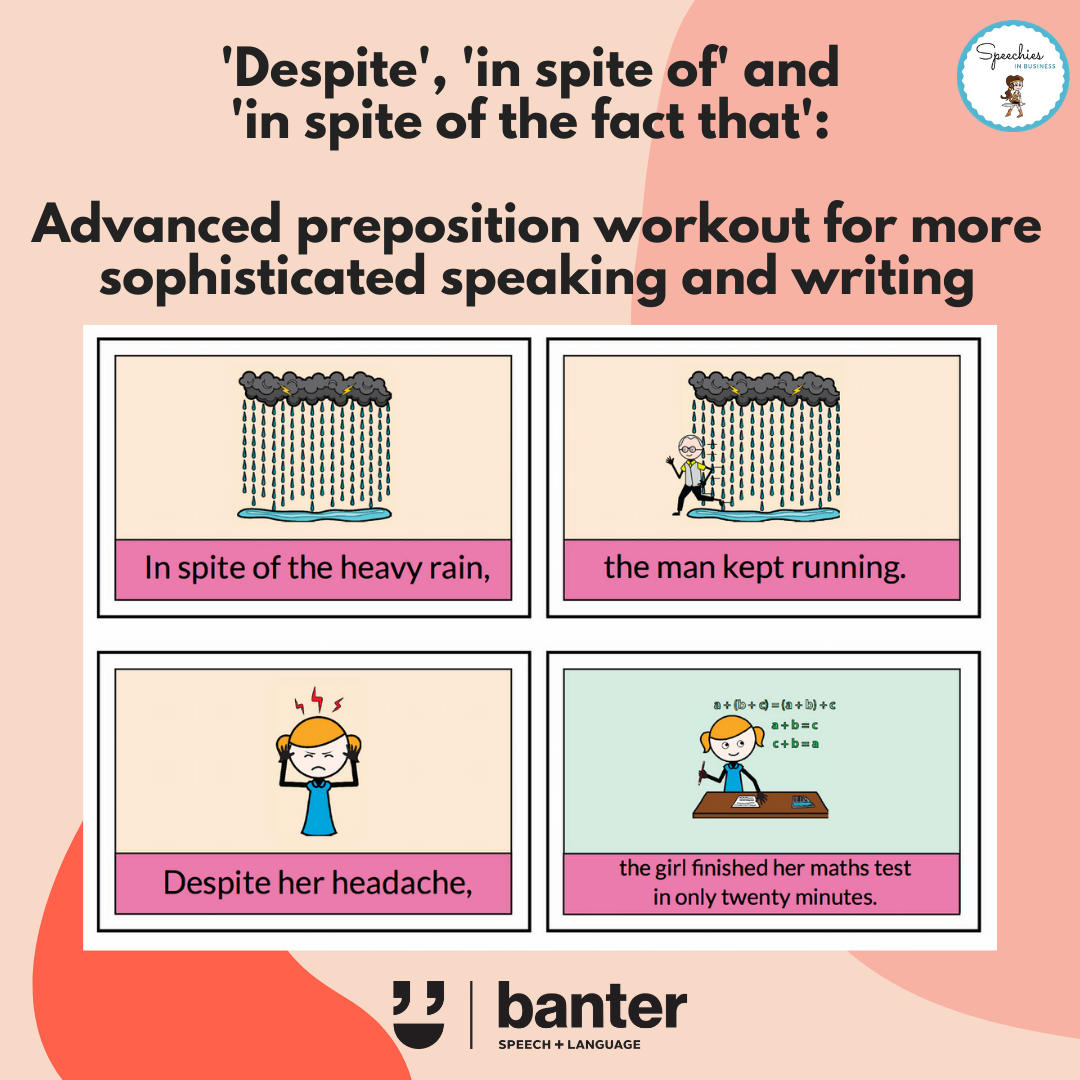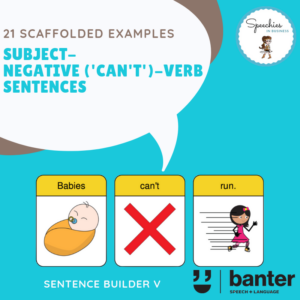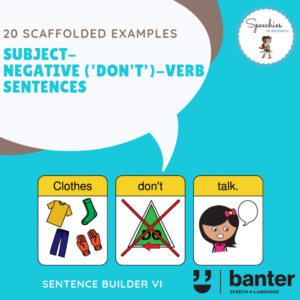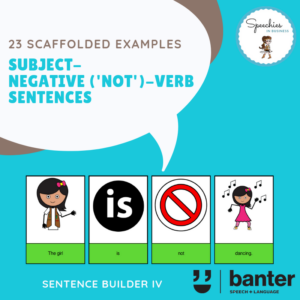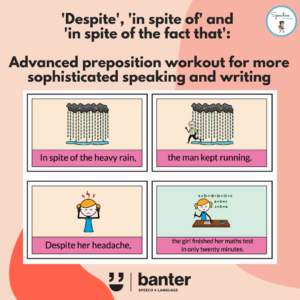(L517) “Despite”, “in spite of” and “in spite of the fact that”: Advanced preposition workout for more sophisticated speaking and writing
$5.99 including GST
“Despite”, “in spite of” and “in spite of the fact that”, are very useful words and phrases to use in both spoken and written language. They all mean the same thing: “without being affected by” or “in defiance of” (resisting or refusing to obey).
Practice saying or writing the sentences in this 17-page pack, and then explain what they mean in your own words.
Description
“Despite”, “in spite of” and “in spite of the fact that”, are very useful words and phrases to use in both spoken and written language. They all mean the same thing: “without being affected by” or “in defiance of” (resisting or refusing to obey).
For example, read this sentence:
“Despite the cold, Mary wore only a summer dress.”


This means that Mary wore a summer dress and was not affected by the cold – even though you’d expect that Mary would wear more clothes if it were cold. By wearing a summer dress, Mary is defying the cold!
Another way of saying the same thing is to say “in spite of” or “in spite of the fact that“. For example, read these sentences:
“In spite of his fever, George sang very well at the Christmas party.”
This means that George sang very well, and was unaffected by his fever, even though you would expect that a fever would affect George’s singing voice. By singing well, George defied his fever!
“In spite of the fact that it was 2021, Ellen preferred to listen to music on her grandfather’s old record player.”
This means that Ellen prefers to listen to music on her grandfather’s record player, and that her decision is unaffected by the fact that, in 2021, there are more technologically advanced ways of listening to music, e.g. through streaming services like Spotify, or websites like YouTube. Even though Ellen could probably listen to music using new technologies, she prefers to listen the old-fashioned way – defying or resisting the convenience of new technologies, probably because of her love for her grandfather or his record player (or both)!
Practice saying or writing the sentences in this 17-page pack, and then explain what they mean in your own words. Remember that “despite” and “in spite of” mean “without being affected by” or “in defiance of”.

